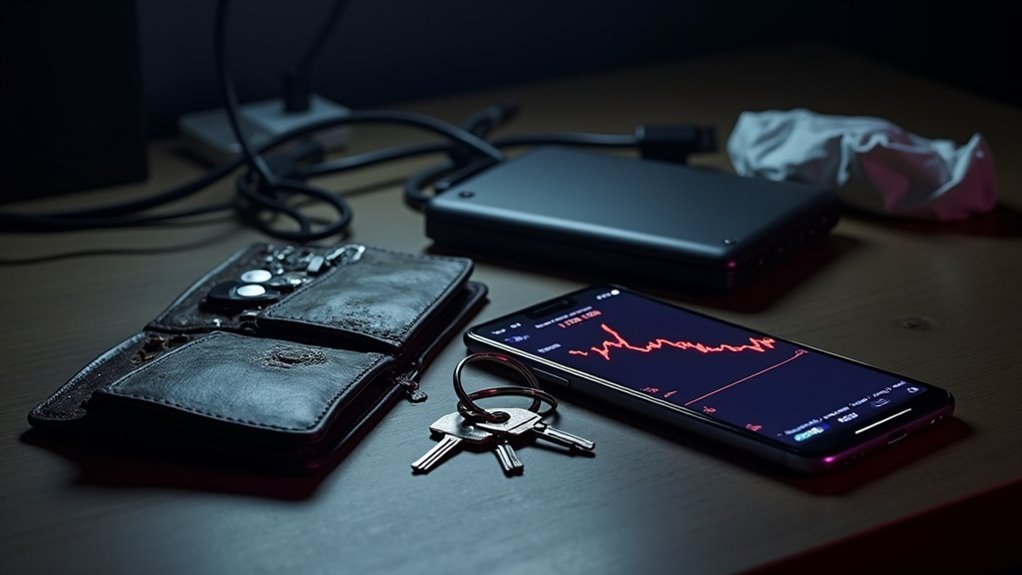Making a Bitcoin mistake can be catastrophic – and permanent. Just ask the countless investors who’ve lost fortunes by not securing their private keys properly. Once those keys are gone, those Bitcoin are gone forever. No customer service hotline to call. No password reset option. Nothing.
Lose your Bitcoin private keys, and your crypto fortune vanishes forever into the digital void – no second chances, no recovery options.
The crypto landscape is riddled with costly errors that haunt investors daily. Hardware wallets gather dust in drawers while users keep their fortune on exchanges – until they get hacked. Paper wallets deteriorate in sock drawers. Multi-signature security features sit unused. Meanwhile, scammers are having a field day. Market sentiment and speculation drive extreme price swings that can devastate unprepared investors.
These days, fake exchanges pop up like mushrooms after rain. Social media is crawling with imposters promising to double your Bitcoin – and plenty of people still fall for it. Phishing emails look increasingly legitimate, and malware grows more sophisticated by the day. The crypto wild west shows no signs of settling down.
What’s worse, many investors jump in without understanding the basics. They don’t grasp blockchain technology, ignore tax implications, and remain clueless about regulatory requirements. They trade on emotion, buying high and panic-selling low. Dollar-cost averaging? Exit strategy? Foreign concepts to the FOMO crowd. Unlike traditional bank accounts, no FDIC insurance exists to protect crypto investments if an exchange fails. Portfolio diversification remains essential for protecting against catastrophic losses in volatile crypto markets.
Security best practices get treated like optional suggestions. Weak passwords. No two-factor authentication. Trading on public Wi-Fi. It’s like leaving your front door wide open in a bad neighborhood.
And don’t even get started on transaction fee management – some users pay astronomical fees simply because they don’t know any better.
Record-keeping? That’s another nightmare altogether. The IRS isn’t known for its sense of humor when it comes to unreported crypto gains. Yet countless traders can’t piece together their transaction history when tax season rolls around. Their Excel spreadsheets are a mess – if they exist at all.
The biggest mistake? Thinking these mistakes happen to other people. They don’t. They happen to careful people, smart people, tech-savvy people. They happen right now, every day, in ways both dramatic and subtle.
And in the unforgiving world of cryptocurrency, some mistakes you only get to make once.





